Afghanistan: NightWatch comments on the Frontline Report on PBS. The one-hour special is important more for its visual images than for any words in the script or from interviews. The visual images add dimensions to understanding.
The script is about protecting people and establishing local rapport. The interviews with generals reinforce those messages. The video and audio of a local village encounter show that young US Marines are clueless. Even the more reflective Marine captain, with all the best intentions in the world, comes off as clueless, far too young and inexperienced for the task his superior set for him to establish rapport with the Pashtuns of Helmand Province.
The language of the script is that of Western academic study of insurgency. The ironic reality is that very young American men presume to preach about survival to Afghans old enough to be their grandfathers. There is no respect for age shown in any of the local encounters PBS filmed. The videos showed the Americans to be afraid, unprepared and ill-informed and the Afghans were uniformly defiant, in the NightWatch view. One wondered whether the young officer knew the clan of the men he was addressing?
The most startling segment of the telecast was a scene in which a Marine officer tried to persuade locals that the village was now safe because the Marines arrived. They wanted the locals to help them. The Afghans challenged how could the Afghans help the Marines? They did not even own a sword.
The setting was a village that was empty of inhabitants who fled when they learned the Marines were coming to save them from the Taliban. Nevertheless, inexplicably and in an empty village, the Marine officer was interrogating a dozen or so Afghan men, using an interrogator who did not speak the local dialect.
The US officer got impatient with the Afghans because they were not being cooperative, the script indicated. He could not speak the language and his interpreter was not qualified but he directed his anger at the Afghans … and the insanity of the situation, no doubt. Th4e video showed him to be arrogant and disrespectful of the residents and especially of the elders in the group. He probably was mostly scared and maybe a little embarrassed.
Neither PBS nor the Marine officer noticed that a significant portion of the men wore black turbans, the signature headdress of the Taliban. Who can know for sure, but experience suggests any men found in a Helmand village without children or women are Taliban. These facts raise a significant probability that the Marine officer was issuing orders to and expressing frustrations with the actual rulers of the village, who were Taliban or Taliban sympathizers and apparently was not aware. It was like watching films from the early period of the Vietnam War all over again.
And when did governance, or more accurately government, become so important in Afghanistan? A significant portion of the video focused on this issue in interviews and commentary.
This is an American obsession. Louis Dupree, the foremost US expert on Afghanistan before he died, never thought good government was important. His writings and experience indicate that Afghans prefer no government outside the local shura. What westerners call corruption Afghans call survival.
The message of the Frontline special is not in the script, but rather in the images which invariably put the lie to the words. The take away is that US words to not match US actions. That is the fundamental Afghan gripe against the US: it promised a lot and did not deliver. The Pashtuns judge they were better off under their own leaders, after waiting eight years for some benefits from having ousted the Taliban.


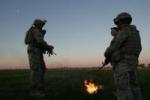

 ).
).
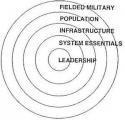


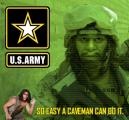

 "A Sherman can give you a very nice... edge."- Oddball,
"A Sherman can give you a very nice... edge."- Oddball, 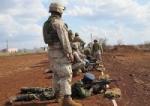
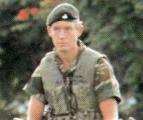

Bookmarks